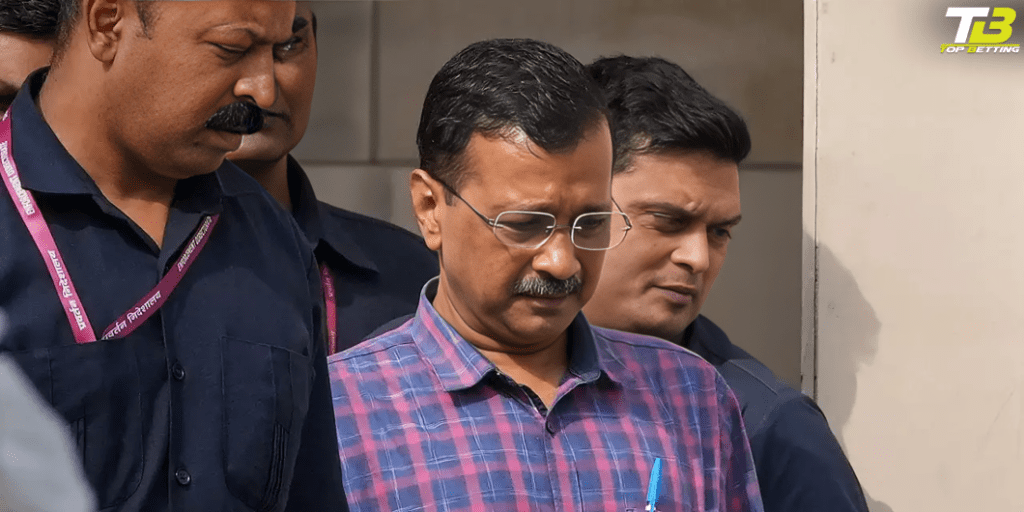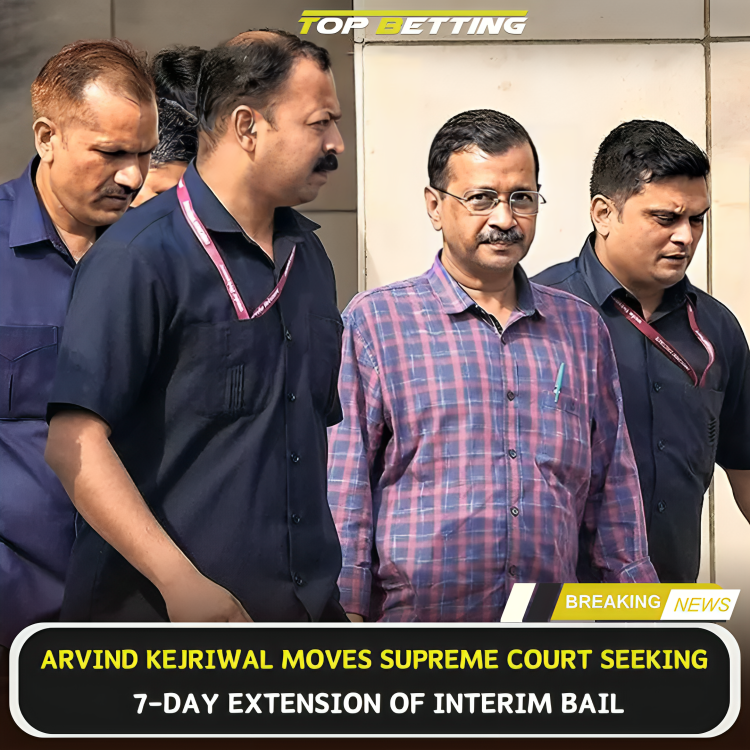
Kejriwal moves SC seeking 7day
In a recent legal development, Delhi Chief Minister Arvind Kejriwal has approached the Supreme Court seeking an extension of his interim bail. The Aam Aadmi Party (AAP) leader, who was granted interim bail by the apex court earlier, is now requesting a 7-day extension to the existing relief.
Delhi chief minister Arvind Kejriwal has filed a petition in the Supreme Courtseeking an additional seven days of interim bail in a money laundering case linked to the excise policy scam. The Aam Aadmi Party (AAP) said this extension is sought to obtain PET-CT scans and other medical examinations.
Kejriwal’s Legal Troubles
Arvind Kejriwal, the prominent political figure and Delhi’s Chief Minister, has been embroiled in a legal battle over the past few months. The charges against him stem from a defamation case filed by Bharatiya Janata Party (BJP) leader Vijender Gupta, who accused Kejriwal of making false allegations regarding a “conspiracy” to assassinate Prime Minister Narendra Modi.
Interim Bail Granted by Supreme Court
In a significant development, the Supreme Court had earlier granted Kejriwal interim bail, providing him temporary relief from arrest in the defamation case. This decision came after the Delhi Chief Minister approached the apex court, seeking protection from arrest.
Seeking Extension of Interim Bail
Now, Kejriwal has moved the Supreme Court once again, this time requesting a 7-day extension to his existing interim bail. The AAP leader’s legal team has argued that the additional time is necessary to file a comprehensive response to the defamation case against him.
Kejriwal’s Allegations of Political Vendetta
Kejriwal and the AAP have consistently maintained that the legal proceedings against him are part of a “political vendetta” orchestrated by the BJP-led central government. They have accused the ruling party of using the judiciary to target opposition leaders, particularly those who have been critical of the government’s policies and actions.
Implications of the Supreme Court’s Decision
The Supreme Court’s decision on Kejriwal’s plea for a 7-day extension of his interim bail will have significant implications, not only for the Delhi Chief Minister but also for the broader political landscape. If the extension is granted, it will provide Kejriwal with more time to prepare his defense and potentially strengthen his position in the ongoing legal battle.
Potential Impact on Delhi’s Governance
The legal proceedings against Kejriwal have the potential to disrupt the governance of the national capital. Any prolonged absence of the Chief Minister or his inability to effectively lead the Delhi government could have far-reaching consequences for the city’s residents and the delivery of essential public services.
Wider Implications for Indian Politics
Beyond the immediate legal implications, Kejriwal’s case has also sparked a broader debate about the use of the judiciary for political purposes. The accusations of a “political vendetta” raised by the AAP have resonated with many opposition parties, who have expressed concerns about the erosion of democratic norms and the misuse of state institutions for partisan gains.
Calls for Judicial Independence and Fairness
The Kejriwal case has reignited discussions about the need for greater judicial independence and the importance of ensuring fairness and impartiality in the legal system. Voices from across the political spectrum have called for reforms to safeguard the judiciary from undue influence and political interference.
Ongoing Scrutiny and Public Attention
The Arvind Kejriwal saga has captured the attention of the nation, with the legal proceedings being closely followed by the media and the public. The outcome of the Supreme Court’s decision on the extension of interim bail will be closely watched, as it could have significant implications for the Delhi Chief Minister, the AAP, and the broader political landscape.
Importance of Due Process and Rule of Law
Regardless of the political affiliations or the perceived motivations behind the legal case, it is crucial that the judicial process is allowed to unfold in a fair and impartial manner. The rule of law and the principles of due process must be upheld, ensuring that no individual or party is above the law.
Calls for Bipartisanship and Constructive Dialogue
As the Kejriwal case continues to unfold, there have been calls for a more constructive and bipartisan approach to addressing the concerns raised by the AAP and other opposition parties. Fostering an environment of open dialogue and finding common ground on issues of judicial independence and political accountability could help mitigate the risks of further polarization and erosion of democratic norms.
Conclusion

The Arvind Kejriwal saga is a complex and multifaceted issue that goes beyond the individual case and touches upon broader questions of political accountability, judicial independence, and the integrity of India’s democratic institutions. As the Supreme Court considers Kejriwal’s plea for a 7-day extension of his interim bail, the outcome will be closely watched by the nation, with far-reaching implications for the future of Indian politics.










